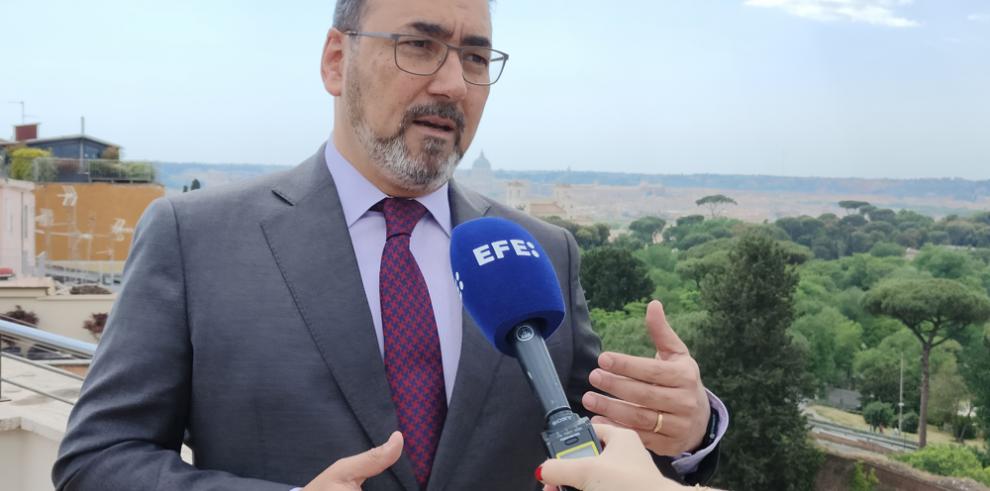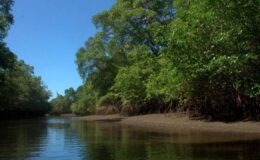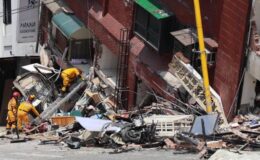As a FIRM believer in CLIMATE CHANGE, Latin America is VITAL key to any progress.
- By : James Bryson
- Category : Environmental, World Events

The world must understand that any solution to the climate crisis passes through Latin America, a region rich in biodiversity that “can solve the global carbon problem” and take advantage of its digital transformation to create millions of jobs, the president of the Development Bank tells Efe of Latin America (CAF), the Colombian Sergio Díaz-Granados.
“The most important thing is to keep in mind that there is not going to be a global solution without Latin America,” says the head of CAF in Rome, where he traveled to participate this Thursday in an event chaired by Pope Francis and organized by the CAF Foundation. Scholas Occurrentes, to promote the role of young people in protecting the environment.
“We have 60% of the world’s biodiversity, 30% of the world’s available agricultural land, 25% of tropical forests. Any global solution related to climate change, nutritional security, or energy transition needs and passes through America Latin,” he says.
CAF, THE GREEN BANK OF LATIN AMERICA
Díaz-Granados assumed the presidency of CAF last July for a period of five years, in which he plans to turn the bank into “a great green financier within Latin America.”
The organization decided last November to allocate 25,000 million dollars (about 23,803 million euros, at the current exchange rate) to finance up to 2026 green operations that help the countries of the region to increase climate resilience, promote the energy transition, achieve growth without polluting emissions and strengthen the conservation of natural ecosystems and biodiversity.
This amount means that the institution’s green financing will go from 24% in 2020 to 40% by 2026.
“We are going to achieve it thanks to a capitalization strategy” of 7,000 million dollars (almost 6,666 million euros), which “was approved by all the countries in December,” he recalls.
Díaz-Granados believes that Latin America can become “a solution to the global carbon problem” and defends the use of “reforestation (of the region) as a tool to contain climate change.”
STRENGTHEN RELATIONSHIP WITH EUROPE
The European Union has set itself the goal of reducing greenhouse gas emissions by 55% by 2030 compared to 1990, and Latin America can help in this process, he believes.
“The idea is to try to further expand Europe’s relationship with Latin America. CAF is a good vehicle for that. We have had Spain as a partner of the bank for 20 years, during which time we have been bringing the relationship closer together. But we are interested in all Europe is closer and understands Latin America as a region that offers solutions,” he says.
At the same time, Latin America sees in Europe “a complement in terms of technology and the mobilization of resources from the private sector for the region.”
HONDURAS EXPECTS TO JOIN CAF
Honduras has recently expressed its interest in becoming the 21st shareholder of the multilateral organization as soon as possible and the date to keep in mind is July 19, when CAF’s board of directors will meet in Panama and when it could make a decision, says this lawyer Graduated from the Externado University of Colombia.
“Recently, El Salvador joined CAF and we are in the same process with the Dominican Republic, Costa Rica and Honduras. We are in the process of geographic growth, we also want to incorporate more Caribbean islands,” he argued.
CAF, headquartered in Caracas and established in 1970, is made up of 20 countries -18 from Latin America and the Caribbean, along with Spain and Portugal- and 13 private banks in the region.
PROJECTS IN EXECUTION
The agency is currently participating in a project to promote the agricultural, forestry and fishing sectors of southeastern Mexico, and together with the Global Environment Facility GEF – (GEF) to promote the conservation of biodiversity on Floreana Island in Galapagos.
In Panama it is one of the main sources of financing for development, in Colombia it promotes creative economy reforms and in several Latin American countries it leads the so-called “biodivercities” program, which tries to convert cities into spaces that incorporate effective and comprehensive local and regional biodiversity in its urban planning and management.
CAF is also working on other connectivity and digital use projects in Latin America and the Caribbean to explain to societies that digitization can be “the opportunity to generate millions of jobs for young people and women.”



No Comments